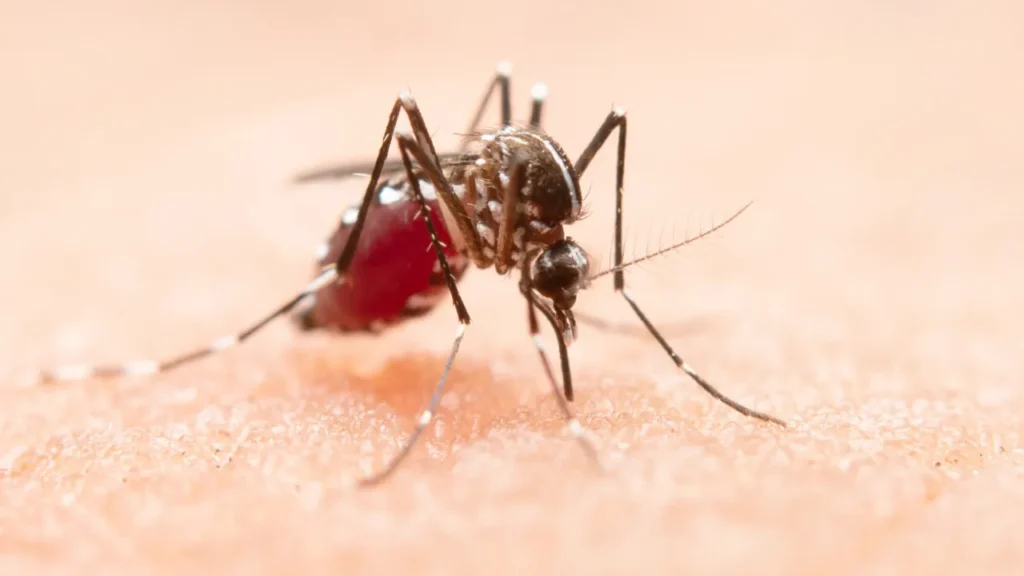
Concerns about an increase in dengue cases in Malaysia amid warnings of a drought :
Health officials in Malaysia are keeping a close eye on the growing number of dengue cases, which have increased dramatically in recent weeks, raising fears about a possible epidemic. Director-general of the Health Ministry Datuk Dr. Muhammad Radzi Abu Hassan disclosed that during the 6th Epidemiological Week (EW06), which took place from February 4–10, there were 3,631 reported cases of dengue, a slight decrease from the 3,969 cases that were reported the week before. The total number of cases for the year has reached 22,058, considerably exceeding the numbers from the same period in the previous year, when only 13,094 cases were reported. This temporary decrease notwithstanding.
Dr. Radzi underlined that the increase in dengue cases is concerning, especially since it follows a more acute trend than it did in the prior year. According to data from the Health Ministry, there were 18,247 cases reported in the first five weeks of 2024 compared to 11,127 cases during the same period in 2023, a 65.6% increase. In addition, there have been more deaths linked to dengue fever complications than ever before—ten deaths have been reported so far this year, compared to nine during the same period previous year.
The spread of dengue hotspots throughout the nation makes the situation even worse. The quantity of hotspots reported increased to 199 localities in EW06, from 180 the week before. Remarkably, Negeri Sembilan has ten hotspots, Kuala Lumpur and Putrajaya have eighteen, and Selangor has one hundred and fifty. The fact that the outbreak is widespread is demonstrated by the fact that Perak, Penang, Kedah, Pahang, Johor, and Sabah are also impacted.
Public health professionals alert us to potential difficulties even as dengue prevention efforts get under way. Dr. Radzi cited the surge in dengue cases as being largely caused by the unpredictable weather and increased public movement, especially on weekends, school holidays, and during festive seasons. In addition, mosquito breeding grounds may be favourable due to the approaching hot and dry spell, which could be made worse by the La Nina phenomenon that is expected for February and March.
Health authorities are pushing the public to take preventive action to stop dengue transmission in response to the worsening crisis. This entails removing any possible mosquito breeding grounds by making sure that there are no containers with standing water, applying insecticides, and dressing in light colours and applying insect repellent when you’re outside, especially during the hours when mosquito bites are most common.
Additionally, public health specialist Datuk Dr. Zainal Ariffin Omar stressed the significance of community involvement in halting dengue’s spread. He emphasised the importance of receiving treatment as soon as possible and advised people to stay away from mosquito-infested areas at all costs, particularly in the coming summer. In addition, reducing mosquito breeding grounds is essential to containing the epidemic.
Amid the dengue outbreak, worries have also been expressed regarding how the approaching drought will affect agriculture, specifically rice farming. Kedah’s padi farmers have been cautioned to get ready for possible water shortages, which could have an impact on irrigation systems. The La Nina phenomenon, which is predicted to continue in the upcoming months, is the cause of the current hot and dry spell, according to Muhammad Helmi Abdullah, director general of the Malaysian Meteorological Department.
In summary, Malaysia must simultaneously address the growing dengue outbreak and get ready for any fallout from the approaching drought. The nation seeks to navigate through these challenges and protect agricultural productivity and public health by enlisting the help of health authorities and the public in concert with proactive steps to lessen the negative effects of bad weather.